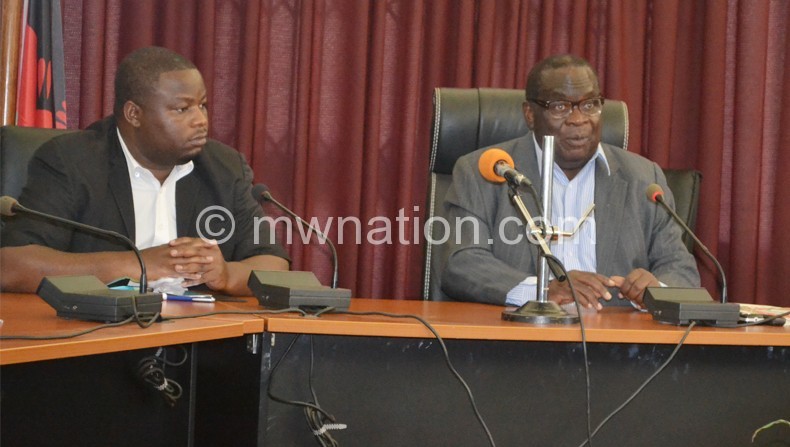Malawi moves to address IPS woes
Against a barrage of criticism, Tobacco Control Commission (TCC) is reviewing the contract selling of tobacco, also known as Integrated Production System (IPS), to address challenges that have rocked the system over the past two years, Business Review has learnt.
Since its approval by former president Joyce Banda in 2012, IPS—a system that allows 80 percent of all tobacco produced to be sold through contract while the remaining 20 percent passes through the traditional auction system—a number of tobacco players have condemned it, saying it is disadvantaging tobacco growers.

Tobacco auctioneer Auction Holdings Limited (AHL) group chief executive officer Evans Matabwa first raised the alarm, slamming the system, arguing that growers who have opted for it were facing delays in getting their proceeds in time unlike their counterparts under contract farming.
He also decried the absence of a legal framework governing IPS, saying such a situation only fuels secrecy among the parties involved.
Last week, Farmers Union of Malawi (FUM), a representative body of all the country’s farmers, also spoke against continued implementation of IPS, which it argued is perpetuating poverty among tobacco growers as they are “cheated”.
“Auction system is far much better because it is straight forward. There are no cheaters and farmers are not cheated,” said FUM president Alfred Kapichira-Banda in an interview.
TCC chief executive officer Bruce Munthali said in an interview this week that government understands various concerns raised by industry players on the challenges rocking IPS.
In the interim, he urged tobacco buyers not to force growers to sign contracts with them and also ensure that indicative prices are known in advance before rolling out the contracts with growers.
“Concerns such as lack of transparency on loans, and prices not known to farmers in advance are issues we need to address as an industry so that when farmers are signing contracts with the merchants, indicative prices should also be attached to those contracts,” explained Munthali.
His response follows recent complaints lodged by some key players in the tobacco industry on the challenges facing IPS since its approval.
Munthali said the tobacco regulatory has already communicated the complaints on IPS to all tobacco buyers to ensure smooth implementation of the system in the subsequent tobacco selling seasons.
“Buyers should pay farmers well. That said, we do not mean that only those farmers on IPS should be paid well but also auction farmers.
“Prices should not be discriminatory, all are our famers. We want both IPS and auction farmers to be well rewarded and that is what we stand for. All the farmers should benefit.”
Munthali also assured that TCC will ensure that both contract and auction systems are allocated equal number of days for selling tobacco in the next selling season, one of the issues that has also been a bone of contention.
But Munthali explained that as it stands now, more than 50 percent of Malawi tobacco merchants depend on sourcing tobacco from contract system, saying the system is not a new phenomenon as it has been there since 2005.
“What has changed is the volumes. It used to be 60 to 40 percent, but now it is 80 to 20 percent share. But there are statistics on the ground, which show that Mozambique, Zambia, Kenya, Tanzania, Uganda are all 100 percent IPS and so Malawi cannot be a standalone. We want Malawi to be strategic as supplier of tobacco,” he said.






Can TCC scrap this system (called IPS) because it is causing unnecessary problems to growers. Firstly, growers are given inputs without detailed costs plus interest. Secondly, growers sell their tobacco without knowing in advance the prices at the market. Finally, growers have to pay their tenants from the little they get after their sales under IPS. If the sales result into a loss growers end up in trouble with their tenants. To summarise it all, I hate the system.